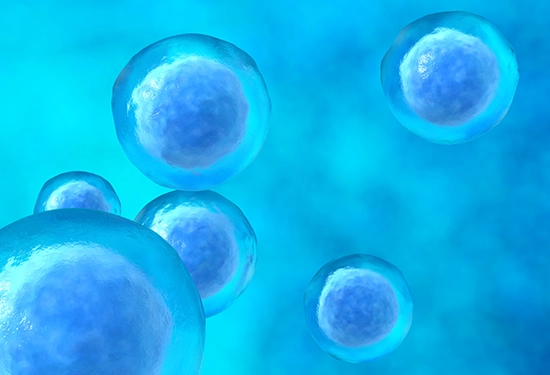Northerner
Admin (Retired)
- Relationship to Diabetes
- Type 1
Amanda Smith celebrates the day, August 1, nearly two years ago, when she stopped taking insulin to manage her type one diabetes, just a few months after getting a dose of experimental stem cells as part of a study.
“I remember, like, being scared and excited, and it’s history now,” she said.
The 36-year-old nurse and mother is part of a small, but what some call “milestone study,” of patients with Type 1 Diabetes using manufactured stem cells, designed to grow in the liver and become the full array of pancreatic islet cells that naturally control blood sugar levels.
In a study published in the New England Journal of Medicine, researchers report that of the 12 patients who received a single dose of the stem cells, it eliminated the need for insulin in 10 for at least a year and stopped episodes of low blood sugar, or hypoglycemia, which can lead to dangerous complications, even death. For Amanda, the treatment has been a blessing.

 www.ctvnews.ca
www.ctvnews.ca
"Diagnosed with late-onset juvenile diabetes when she was 25" - erm, you can be diagnosed with T1D at any age, it's not 'late-onset juvenile diabetes' I was 49 and have known people in their 70s to receive a diagnosis
I was 49 and have known people in their 70s to receive a diagnosis 
“I remember, like, being scared and excited, and it’s history now,” she said.
The 36-year-old nurse and mother is part of a small, but what some call “milestone study,” of patients with Type 1 Diabetes using manufactured stem cells, designed to grow in the liver and become the full array of pancreatic islet cells that naturally control blood sugar levels.
In a study published in the New England Journal of Medicine, researchers report that of the 12 patients who received a single dose of the stem cells, it eliminated the need for insulin in 10 for at least a year and stopped episodes of low blood sugar, or hypoglycemia, which can lead to dangerous complications, even death. For Amanda, the treatment has been a blessing.
London woman off insulin for Type 1 diabetes after a single dose of experimental manufactured stem cells
Amanda Smith celebrates the day, August 1, nearly two years ago, when she stopped taking insulin to manage her type one diabetes, just a few months after getting a dose of experimental stem cells as part of a study.
"Diagnosed with late-onset juvenile diabetes when she was 25" - erm, you can be diagnosed with T1D at any age, it's not 'late-onset juvenile diabetes'
Last edited:

